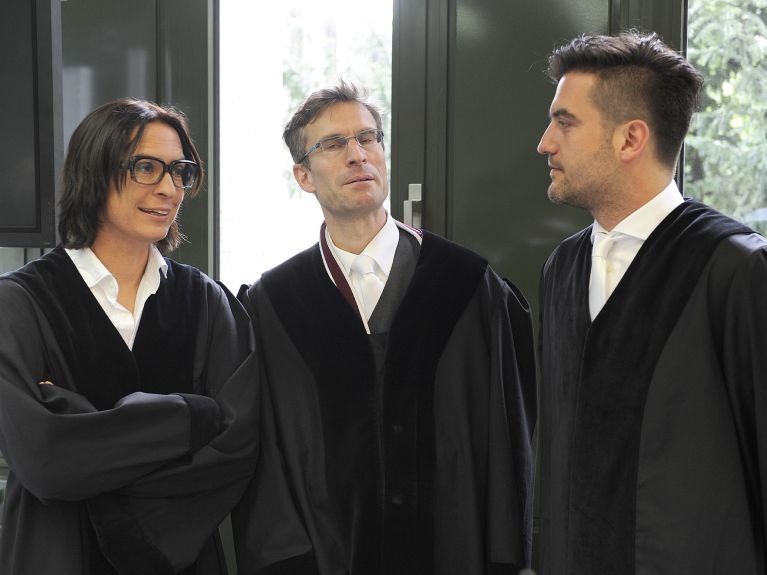How public prosecutors work in Germany
Impartially working for the good of the community: five facts about the job of public prosecutor.

Responsible investigations
There’s a phone call from the police in the middle of the night: they immediately need a search warrant, it’s imperative that the public prosecutor (Staatsanwalt) comes. This or similar situations are frequently seen in Tatort, the classic German TV crime series. Working nights or on-call is actually part of a public prosecutor’s job in Germany. But they mainly work at their desks. In the German legal system it is their job to lead preliminary criminal investigations. That involves reading files, instructing the police to conduct witness interviews or house searches, closing proceedings or writing indictments. The public prosecutor presents the final plea for the prosecution at the end of a court case.
Remaining impartial
Unlike in the USA, where the defence is responsible for presenting all relevant evidence and the prosecutor is seen more as an opponent of the defendant, the public prosecutor in Germany must always act impartially – in other words, also take into account facts that could exonerate a defendant. The public prosecutor’s office is both an investigation and prosecution authority that definitely goes to work when there are any signs of a criminal offence. Here, within the framework of what is known as the right of instruction, it has a duty to report to and take instructions from the respective justice minister. This point is sometimes controversial – for example, compared with other EU countries, such as Italy, where public prosecutors are formally independent.
Acting independently
If you want to work as a public prosecutor in Germany, you must be a German citizen, have studied law at university and successfully passed the German First and Second State Examinations. Between the First and Second State Law Examinations you have to complete a two-year traineeship with periods spent at different legal institutions – for example, with a public prosecutor’s office, at a court or in a public authority. This enables trainees to gain experience of criminal law. Combined with the legal knowledge gained at university, this equips trainees for a career as a public prosecutor – at least in theory. What you need in the day-to-day work – tactical skill in investigations, for instance – is only learned on the job. New entrants to the profession are supported by experienced colleagues for several months before they become solely responsible for their cases.
Showing authority
The application procedure for public prosecutors is considered very stringent and has a harsh tone that can unsettle some candidates. This is meant to test how much authority applicants have. Authority is one of the public prosecutor’s most important characteristics. After all, they have to face not only judges, but also experienced defence lawyers. Very importantly, however, having authority does not mean having a great deal of power. German public prosecutors have no right to intervene in civil law cases – for example, by objecting to a final ruling – as occurs in Russia. Incidentally, the procedure for appointing German public prosecutors differs from that in other countries. In the USA, for example, citizens elect district attorneys in most states, while the President appoints United States attorneys, public prosecutors at the federal level, for a term of four years.
Working for the good of the community
German public prosecutors are civil servants – initially, for a probationary period; then, after three to five years, for life – with all the financial and social guarantees that this status brings. Above all, however, in their work they aim to help the victims of crime – and perform a valuable public service.


